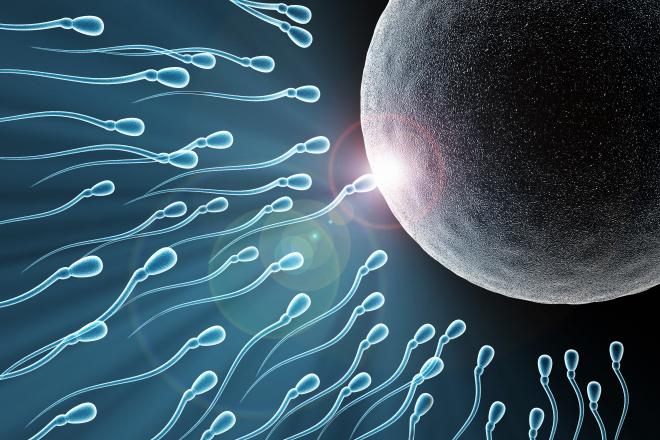Evidence suggests that infant health is linked to the health of the mother and Father. Preconception care is about what you do 3-6 months prior to becoming pregnant with a focus on reducing conception related risk factors and improving health to have a healthy baby.

It takes 3-4 months for a female’s eggs to mature before being released for ovulation and a male’s sperm to mature and fully form. Any non-viable egg/sperm will not reach maturation and will not be released. This highlights the importance of starting preconception care 6-12 months prior to give yourselves the best possible chance of a healthy pregnancy. More studies are emerging on an infant’s health stemming from pre-birth and even prior generation’s, this is known as foetal Programming. (so yes, your parents and grandparents can influence your health!).
Many lifestyle factors dramatically affect fertility, birth success and infant health. Preconception care aims to promote fertility, conception and a healthy pregnancy outcome. Here are a few factors you should consider:
Diet and nutrition
Diet is important when planning for pregnancy. Certain deficiencies such as iron, selenium and zinc have been linked with poor ovulation, thyroid disorders and certain autoimmune conditions. On the other hand, a diet high in simple carbohydrates and refined sugars is also associated with decreased ovulatory fertility.
Weight
Overweight and obese women are less likely to conceive than those with normal weight. Increased weight also increases the risk of pregnancy complications. Over- and underweight women may have difficulty conceiving due to hormonal imbalances and ovulatory dysfunction. Furthermore, obesity can also contribute to reduced outcomes of IVF. Weight loss (and weight gain with underweight women) has been shown to improve fertility in obese women.
 Smoking & Alcohol
Smoking & Alcohol
We’ve all heard how important it is for women to cease smoking and consuming alcohol during pregnancy. But it is just as important for males as these can adversely affect fertility for both sexes due to increased toxin load and damage to DNA in sperm and ova.
Furthermore, smoking reduces sperm production, motility and causes DNA damage in males. In females, smoking can affect hormone levels particularly during the follicular phase which is the time the ovary matures and ovulation occurs thus affecting fertility.
Stress
Psychological stress is an added risk factor for reduced fertility in both females and males. Couples should undertake stress reducing activities whether it is acupuncture. exercise, meditation, dancing or cooking during all stages of preconception and pregnancy.
Toxin Exposure
Exposure to herbicides, fungicides, pesticides, other chemicals and heavy metals have been associated with decreased fertility, a higher risk of miscarriage and increased risk of the child developing ADHD and autism.
It is important to examine your exposure to chemicals not only in food but everyday chemicals around the house including cleaning products, cosmetics and skincare. If you experience high exposure to chemicals due to work or where you live (farming districts), I recommend testing for heavy metals and undergoing a detoxification program 6-12 months prior to trying to conceive to ensure not only improvement of your own health but also oocyte and sperm quality.
Pre-natal vitamins
Pre-Natal supplementation should ideally commence 3 months before conception to ensure that the mother is not deficient in nutrients required for hormone production, oocyte production and has ample stores during gestation; as well as for male sperm production and quality. When choosing supplements:
- Quality is very important as you are looking to form new life into this world. Not all supplements are created equal with some forms being more absorbable than others
- More is not necessarily better. Too high doses of anything is not always good. Again, this goes back to quality
- Get tested. In some cases, if you don’t have a deficiency you don’t need the supplement. Some nutrients in excess can actually cause harm
- Seek professional advice – practitioner only supplements that can only be prescribed by your healthcare professional (ie. Naturopath, nutritionist, doctor) may sometimes be better quality than cheaper over-the-counter supplements. These will also often be formulated on based on scientific research.
 It takes 2 to tango
It takes 2 to tango
Men also experience declining fertility as they age.
Lifestyle factors that may affect fertility in males include wearing tight-fitting clothing, using hot baths and spas and saunas. Diets high in meat and dairy have also been associated with compromised semen quality, whereas diets high in fruit and vegetables have shown to be more beneficial to sperm and men’s health overall.
Other factors that should be considered when planning for pregnancy is medications such as cholesterol lowering and blood pressure medication that can affect the health of the sperm along with over-the-counter drugs such as aspirin and ibuprofen.
It is important to remember that fertility and improving egg and sperm quality is not always an overnight fix. Even if you are healthy and seemingly doing all the right things your ferility may be affected by an undiagnosed condition. Thus, whilst it is important to follow some general dietary and lifestyle advice it is imperative couples have an individual assessment and the correct tests. As without the correct diagnosis, there is no correct treatment and without correct treatment there is no improving egg and sperm and your situation remains the same!
